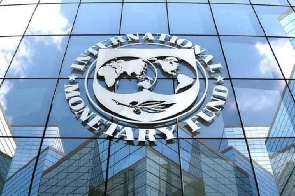 The International Monetary Fund (IMF)
The International Monetary Fund (IMF)
Nigeria, the continent’s biggest economy has been advised by the International Monetary Fund (IMF) on how to raise more revenue to ensure a more sustainable fiscal position going forward.
The assertion by the Fund follows an observation made in its assessment of Nigeria’s economy.
The Fund observed that Nigeria has one of the lowest revenue levels as a share of Gross Domestic Product (GDP) globally – 9.4 percent of GDP in 2018.
Despite having one of the lowest revenue levels, a large share of government revenues is spent on the country’s public debt service payments, leaving insufficient fiscal space for critical social and infrastructure spending and to cushion an economic downturn.
The IMF in its recommendations to Nigeria, pointed out that mobilizing revenues through efficiency-enhancing and progressive measures should be a top near-term priority for the government.
IMF advised that the country revisit tax exemptions and customs duty waivers, increase and broaden the base for excise taxes, develop a high-integrity taxpayer register, enhance digital infrastructure, and improve on on-time filing and payments.
It further noted that once the economic recovery takes root, Nigeria will need to increase the value-added tax (VAT) rate to at least 10 percent by 2022 and 15% percent by 2025, which is the average in countries belonging to the Economic Community of West African States (ECOWAS).
“This is to help create an effective fiscal space,” noted IMF.
The outbreak of the Covid-19 pandemic has had a devastating impact on Nigeria’s revenue mobilization efforts and the economy, placing the country at a critical position. Nigeria entered the COVID-19 pandemic crisis with a falling per capita income, high inflation, and governance challenges.
IMF has said that Nigeria’s recovery is expected to be weak and gradual under current policies. Real GDP growth in 2021 is expected to turn positive at 1.5 percent and is expected to recover to its pre-pandemic level in 2022.
However, the Fund stated that the near-term outlook for the country is subject to downside risks from pandemic-related developments with Nigeria experiencing a second wave.
It also said that non-oil GDP growth is also expected to remain sluggish, reflecting inward-looking policies and regulatory uncertainties.